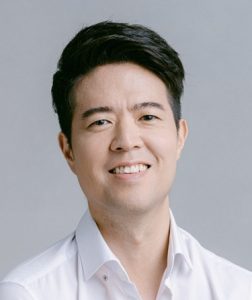In 2007, after graduating from UC San Diego, I headed to Yanbian, China. While the dynamic growth of China’s booming economy and its associated optimism throughout the country was intriguing, it was the Yanbian Korean Autonomous Prefecture, which borders North Korea, that offered a different kind of allure. This region is home to Yanbian University of Science and Technology (YUST), China’s first Sino-foreign joint university established for the Korean Chinese community.
Until I arrived in Yanji, I had believed that the largest Korean community outside of Korea was in Los Angeles. But the moment I set foot in Yanji, I realized just how limited my perspective had been. Just to give some perspective, the Yanbian Korean Autonomous Prefecture is about half the size of South Korea, and everywhere you go, both Chinese and Korean languages are displayed in parallel.
Joseon-jok, the Korean Chinese people, I met in the markets and on the streets spoke a distinctive Yanbian dialect of Korean, and they enjoyed not only Korean dramas but also traditional performances like Chunhyangjeon. A vast “Korea” far beyond the scale of LA’s Koreatown existed on the periphery of China.
During my brief time at YUST, I formed several friendships with Korean Chinese students, particularly growing close to one named Ilsoo. One day, Ilsoo invited me to his hometown, Wangqing, about an hour away from Yanbian, and I took a village bus to get there. The journey felt like stepping back in time, as if I was passing through a Korean neighborhood from 40 years ago.
When I arrived at Ilsoo’s home, his grandmother warmly served me a delicious corn porridge. I later learned that Ilsoo’s parents had been working in South Korea for years, sending money back to support him and his younger brother.
It was around that time that Ilsoo asked me if I had ever heard of the fruit “apple-pear.” Apple-pear, a genetically engineered hybrid fruit combining apple and pear, was widely cultivated in the Yanbian region. Ilsoo explained that Korean Chinese often referred to themselves as “apple-pear,” reflecting their ambiguous identity—neither fully apple nor pear, neither fully Chinese nor Korean. This metaphor spoke to their sense of sorrow and the struggles of living as ethnic minority therein.
As a Korean American, I was struck by how my Korean Chinese friends also grappled with dual identities. Yet, I quickly realized that most diasporas, who leave their homelands to live as minorities abroad, inevitably face the challenge of seeking a sense of self and belonging, though to varying degrees. I began to wonder: When will the Korean Chinese, Korean Americans, or any diaspora, ever fully become a complete “apple” or “pear”?
According to the philosopher Hannah Arendt, most people uncritically accept societal norms and values in order to survive or assimilate into the mainstream. However, some actively embrace their minority status, their marginality, and their outsider identity, never ceasing to engage in critical thinking about dominant cultures and systems.
This critical thinking does not necessarily manifest as social or political activism. It can be deeply personal and philosophical. Let’s recall the words of Hugh of Saint Victor, a 12th-century French theologian:
“Anyone who regards their homeland as sweet is still but a tender beginner.
He to whom every soil is as his native one is already strong.
But he is perfect to whom the entire world is as a foreign land.”
There is deep insight in the old theologian’s words: it is not the cosmopolitan who feels at home everywhere but the one who consciously chooses to be an outsider who is the truly mature being. This path is by no means an easy one. We all have a desire to belong to the mainstream and the “upper” class. It is no coincidence that the highest teachings in both Eastern and Western religions and philosophies emphasize “self-denial” and “transcendence.”
In a world rife with a winner-takes-all mantra, extreme competition, and bloody conflicts, if we want a better future, it may be worth trying: To choose the periphery over the center, to consciously become a diaspora. And in doing so, to realize that the noblest maturity and wholeness lie not in being an “apple” or a “pear,” but in transcending them to become the apple-pear itself.
In a world dominated by a winner-takes-all mentality, fierce competition, and violent conflict, if we aspire to a better future, it might be worth considering this: choosing the periphery over the center, consciously becoming a diaspora. In doing so, we may realize that true wholeness lies not in being an ‘apple’ or a ‘pear,’ but in transcending both to become the apple-pear itself.

By Joseph Juhn
The author is a documentary filmmaker of “Jeronimo” and “Chosen”.



![Family of army veteran killed in San Antonio shooting launches fundraiser A screenshot of the GoFundMe fundraising page created for Kyung Chang Lee. Donations are being collected to support the family of Lee, who was killed in the San Antonio, Texas, shooting. [GoFundMe capture]](https://www.koreadailyus.com/wp-content/uploads/2026/02/0225-KyungChangLee-100x70.jpg)